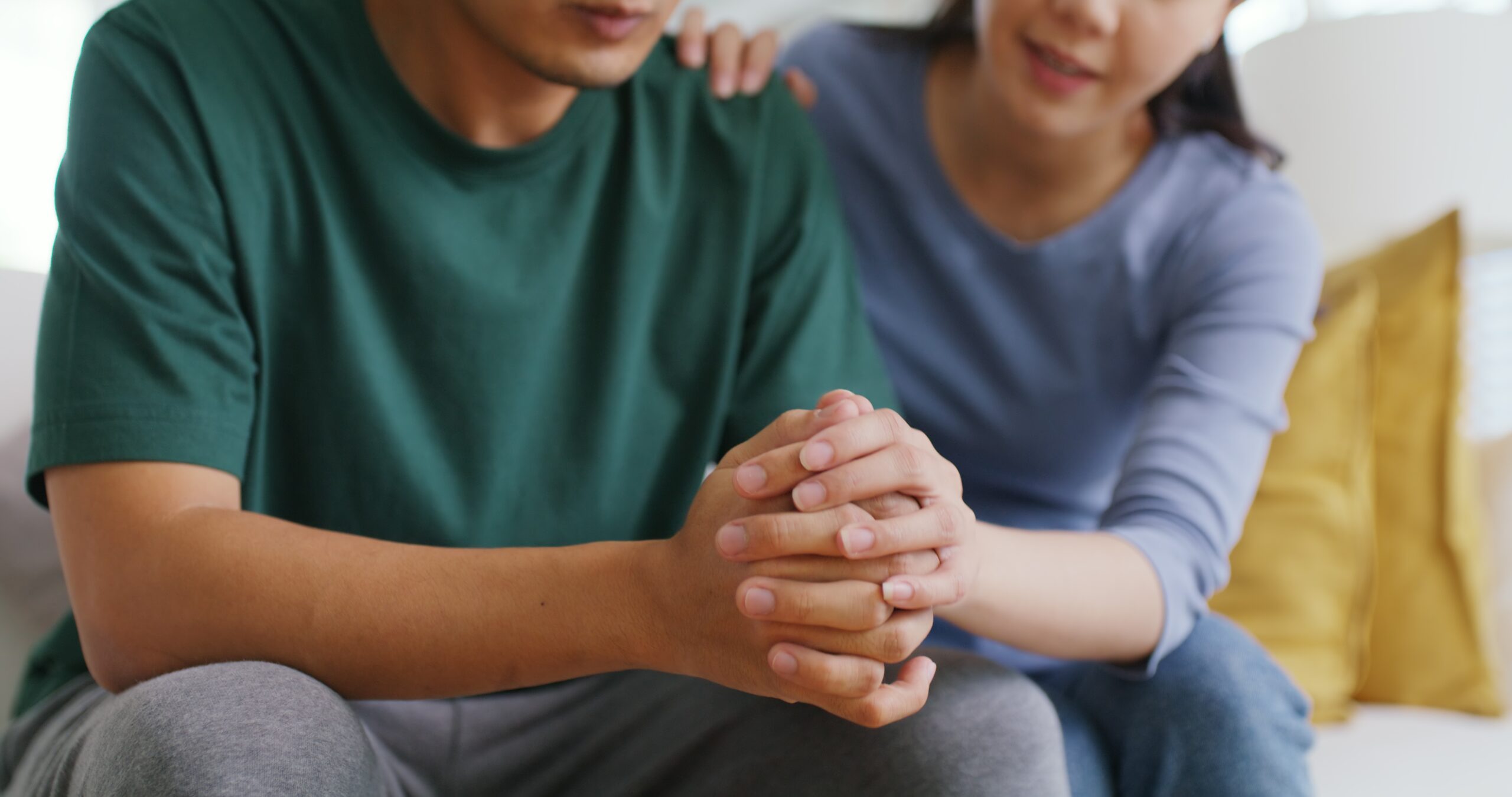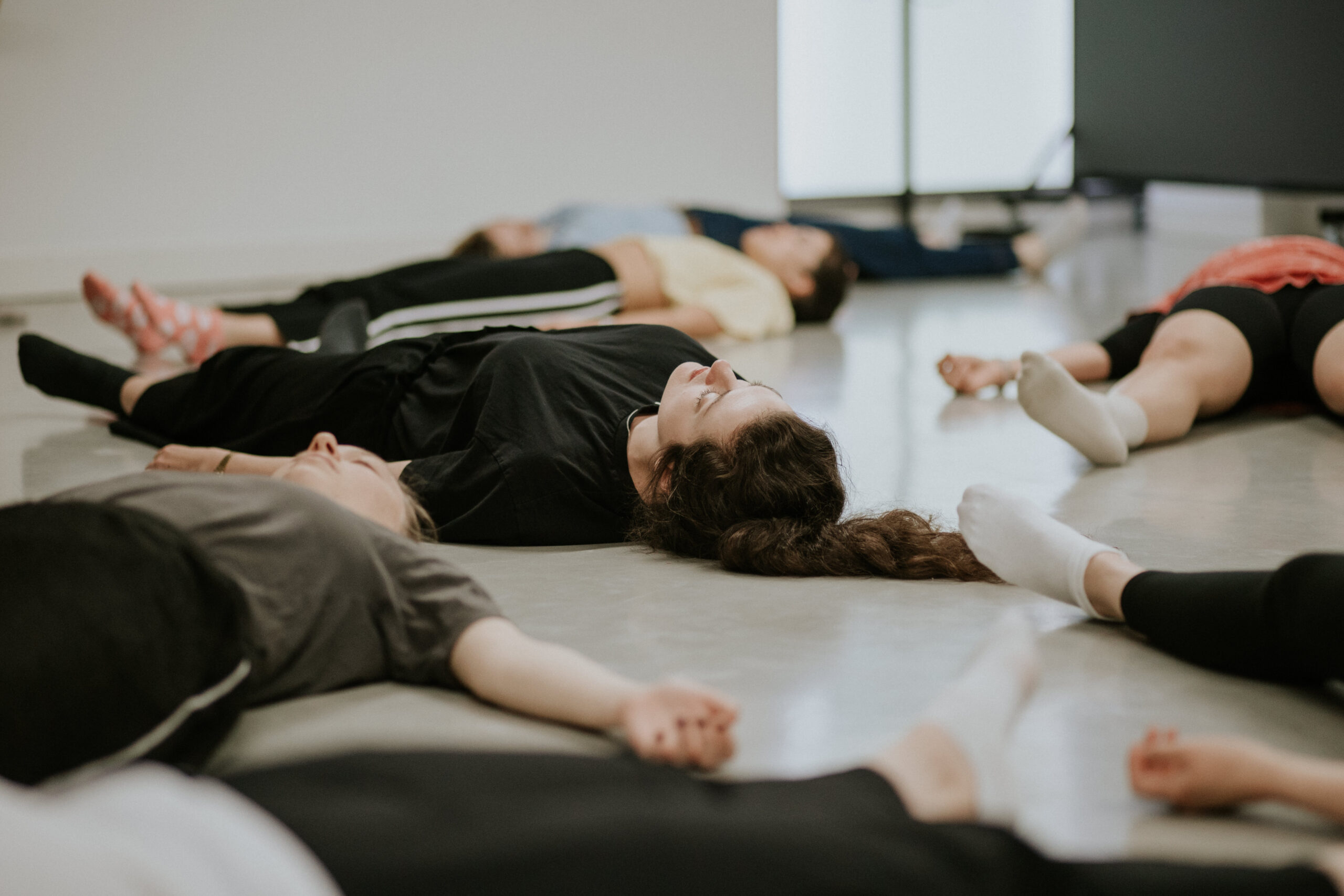Setting the tone for resilience this Mental Health Awareness Week
The “bottom of the pyramid” according to Carol Chapman, registered Psychologist and Performance Coach, centres around lifestyle choices and self-awareness. “Basic lifestyle is really important [for] just maintaining a basic level of mood.” Getting those fundamentals right is essential to good health in general, and without this foundation, it can become increasingly difficult to regulate emotions. A good combination of physical and mental awareness can help see you through difficult or stressful times, dips in motivation and more – here are just a few of the essentials to see you on your way to a good foundation for mental health.
Diet, Sleep and Exercise
…If you’re touring and your hours are all over the place you have to figure out how to eat the right things at times when you need it. If you’re someone who struggles if they’re not in their own bed each night, you have to find ways… It all requires experimentation.
Making sure you are getting enough and quality nutrition is vital to maintaining a basic level of good health, and this can help combat mental health issues. It’s all about ensuring that the basics are solid, as when you start to get stressed or anxious, these are often affected – lack of or excessive appetite, inability to sleep or sleeping too much, can all be signs that something is amiss. Read more about ways to improve your sleep or seek support if you’re unsure where to start.
Keeping in shape and doing exercise can be tricky if your routine is thrown out by a job or tour, and can be perceived as an expensive extra. For a more detailed guide on keeping in shape at low cost, take a look at our guide on How to Keep Healthy for Less.
Eat a healthy diet, exercise, watch your weight, get plenty of sleep, limit your drinking, don’t take drugs and don’t smoke.
Meditation
What I do is work out an individualised set of things to do, you can call it a “toolbox” – learn various techniques and practice using them…
Meditation is an often-cited technique for assisting with maintaining your calm and equilibrium. There are a whole host of great ways to get started with this technique, and they can be achieved from the comfort of your own home. Free apps like Calm or Headspace can be a good starting point – cringe-free guidance through a meditation routine. As Carol says, it’s all about having techniques on hand as a kind of “toolbox” for when you need them most.
Self-awareness, value and reflection
A key element is identifying what stresses you out and figuring out how you’d normally respond to stress. Finding your own individual responses to those situations.
Learning to recognise your own triggers is really important for managing stress, anxiety and other strong emotions that can be thrown up on the job. It’s important too to reflect on your own strengths and weaknesses and remember to value yourself – regardless of what you have achieved and your circumstances, or how you feel you compare to others. This is all about self esteem. Take stock of your own individual achievements – practicing gratitude for the good in your life can help set the tone in a positive direction. If you’re concerned about having a mental illness as a result of negative feelings – feeling low or excessively self-critical – see your GP or investigate BAPAM‘s free assessment.
The whole question of values is very important with performers, because what matters underpins everything else that we do in our lives…. If you’re an actor struggling to get work or develop a portfolio, which is extremely common, then maintaining your confidence and respect is going to be very much dependant on whether you see yourself living the kind of life you value. Remember that we have choices and can change our lives. We can escape the past, learn to welcome the future and act effectively now.
Have a support network
When someone stops taking care of themselves, stops doing stuff around the house, is short tempered, unpleasant or critical, or collects and hoards, or buys and spends – when there are those changes in behaviour it can be very difficult. And it’s easy to concentrate on those and not see them as a sign of something bigger – any big changes really, that are uncharacteristic are worth asking yourself or your relative what’s happening.
It can be hard to support someone going through difficulty if you aren’t sharing the experience – and it can be hard to know just what to do in order to truly help your friend or loved one through it. Carol has a few suggestions, to help you support a loved one through a difficult time:
Show them that even if they just want you to be in the same room, that you’re willing to do that and you’ll create an environment where they can feel free to tell you what they need if they know or so you can ask them what they need. It’s non-judgmental, it’s supporting, it’s open. You’re a supportive, positive presence. The last thing you want is blame, or criticism in someone who is nearby. As a relative or a friend, sometimes you are the one who spots the first signs. And in that case, be aware and in a nice tactful way, do a gentle probing and see what emerges from that.
Having a support network in place is vital. This can be tough if you’ve just arrived in the UK, or a new city, where you might not have as many close friends or family to call upon. Engage with your professional and creative community, reach out to the right experts and don’t be afraid to talk to family, roommates, colleagues, friends and whoever else is on hand – it’s always better to talk to someone, and to remember that you’re not alone. For more great information about dealing with loneliness and isolation, take a look at Reach Out’s guide.
Medication
If someone’s got a serious mental health problem, I think it’s important that someone like me spots it and discusses it. I can make an appropriate referral – with consent of course. It may require a psychiatric assessment – that’s a logical first step – and maybe some medication. I often have discussions with actors about going on or off medication, I think it’s really important that they make an informed choice and that they know if they’re starting on anti-depressants, they’re in it for the long haul. Again, if they’re starting to take beta-blockers of any kind, they are not meant to be taken every day. I see regularly people who have become habituated – it’s not an addiction – but habituated and they can’t conceive of doing anything without the beta-blockers.
Medication is often very helpful to those going through difficulty, in maintaining a baseline level of mood and reducing anxiety. However, it is very important to discuss all your options before you commit to medication as an option. As Carol suggests, anti-depressants are a long-term medication, and if the idea of being on pills for a long time is unappealing, this may not be the best answer for you. They also come with a variety of potential side effects, so it is important to be informed and experiment with what will work best for you as an individual. Know the limitations as well as the potential benefits of this option before making a commitment to a course of medication.
Therapy and other resources
So just like the sports person is very lucky and has a multi-disciplinary team, we have been saying for years that we need arts-based interdisciplinary teams… I do see people who are hovering – very depressed, wondering what the point is – I think when you have those more serious issues like depression or crippling anxiety, that can happen if the problem isn’t being addressed, it can get worse and spread itself. All that needs help from within the team.
There are resources available if you need help. Consult ArtsMinds’ list of resources as a starting point. As an actor, you’re entitled to a free consultation with BAPAM, or you can always visit your GP. Talking therapy can be expensive if you go private, but there are many free starting points and reductions available if you require a course of support. Students should also take advantage of university counselling on offer. There’s a lot more great information out there, starting with BAPAM’s own factsheets.
Whether you’re concerned about your health, your career, your relationships, your finances or about supporting a loved one or others in need, ArtsMinds has a lot of great information available.
If you need urgent help, there are lots of ways to get help now. If you want to take advantage of a free consultation via BAPAM, give them a call on 020 7404 8444.



















